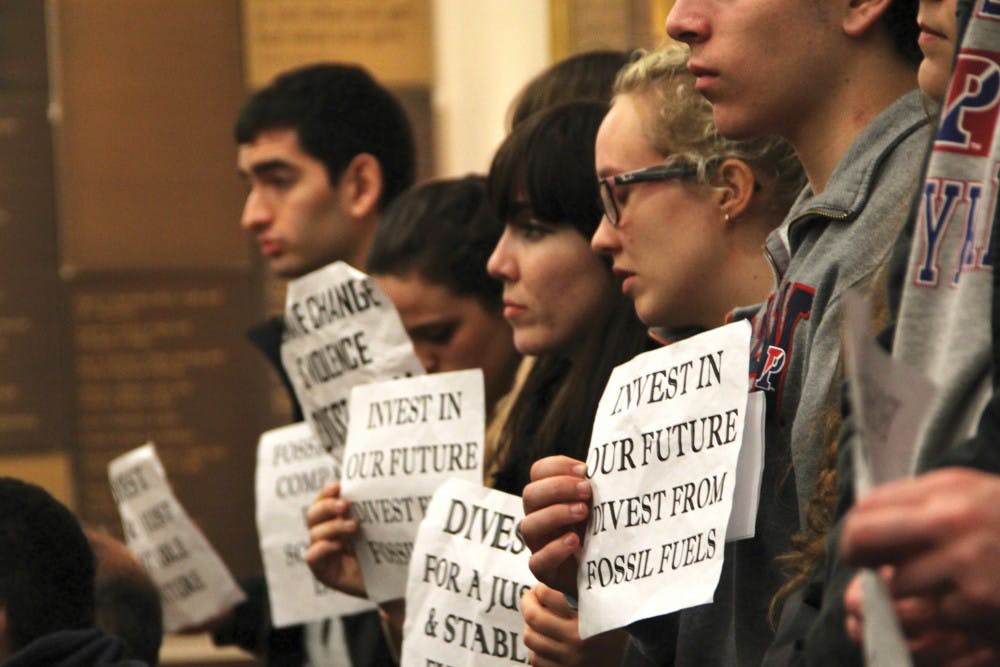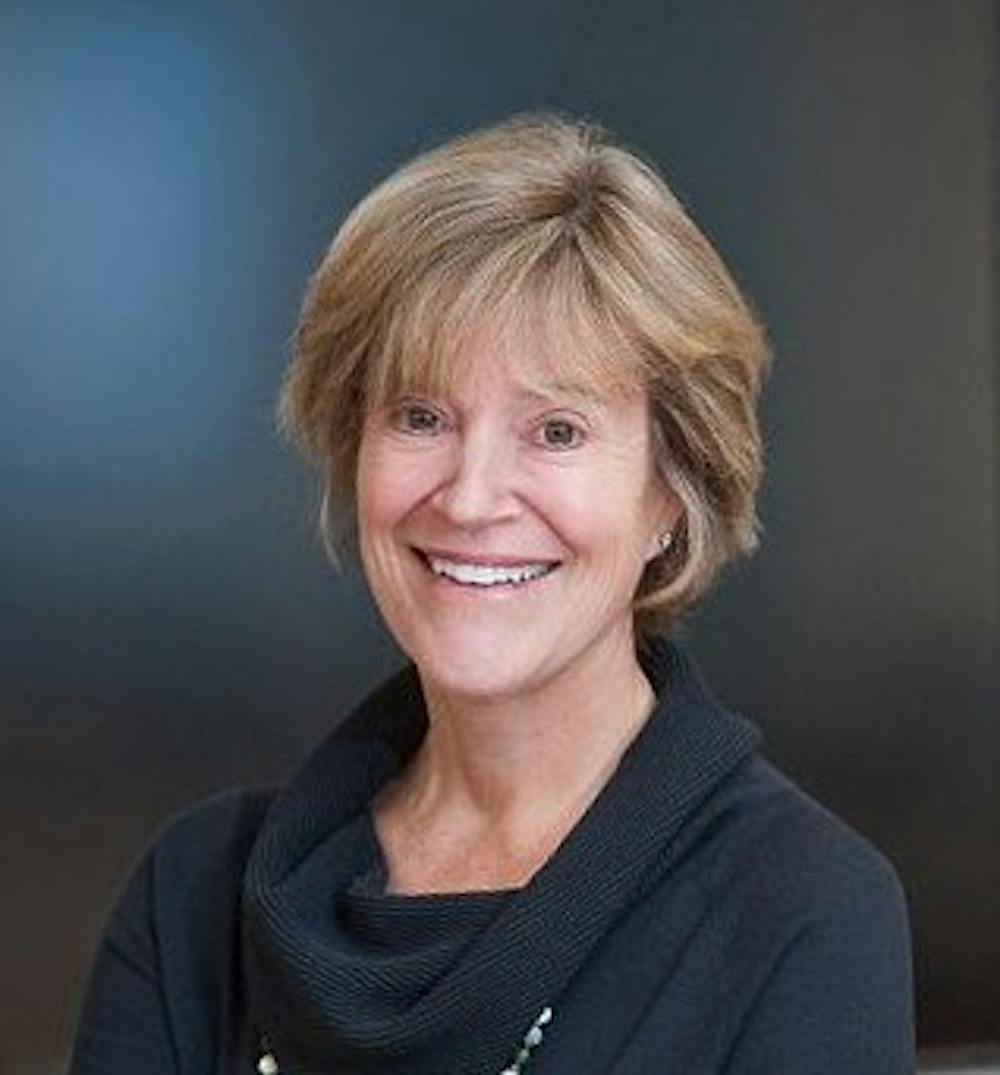
Following the election of Trump, Fossil Free Penn will pursue their mission with more urgency.
Credit: Carson KahoeThe University Council Steering Committee dismissed Fossil Free Penn’s second official attempt to achieve, at least partially, fossil fuel divestment.
After a failed attempt in 2015 to convince Penn to divest from all fossil fuels, the student group called on the University to divest from coal and tar sands, a specific type of fossil fuel, focusing its argument primarily on how Penn would benefit financially from divestment.
This tactic was a shift from the group's previous approach of emphasizing Penn's moral obligation to protect the planet.
“We realized that trustees really only care about financial arguments,” FFP Trustee Coordinator and College senior Zach Rissman said in September 2018 when the group submitted the proposal. “They don’t really care about social arguments at all.”
But the September 58-page proposal did not even pass the preliminary level of proposal consideration, which is conducted by the UC Steering Committee. If a proposal passes and members of the committee decide the proposal merits further consideration, an ad-hoc advisory committee is formed for a more formal deliberation of the proposal.
This happened in 2015 with FFP’s original proposal. After it passed the initial evaluation, an ad-hoc advisory committee discussed the proposal for about nine months before the University reached a final decision against divestment in September of 2016, Rissman said.

“The main issue was the fact that this proposal did not represent a substantive change from the proposal that went forward to the Trustees in 2015," University Faculty Senate Chair and Center for Public Health Initiatives Executive Chair Jennifer Pinto-Martin wrote in an email sent to FFP Campaign Coordinator and College junior Jacob Hershman on Oct. 18.
“It was determined that the requirement that the proposal include ideas substantively different from prior proposals was not met," Pinto-Martin wrote in an email to the DP on the committee's decision against the proposal.
Rissman disagreed with Pinto-Martin's suggestion and said there is a big difference between the two proposals.
“The idea that you can just put these two proposals into one bucket and say no to both is ridiculous,” Rissman said. “The economics of coal and tar sands divestment makes way more sense right now than say for example the economics of divestment from natural gas.”
The Undergraduate Assembly backed FFP’s new proposal in September, passing a resolution in support of Penn’s Board of Trustees divesting from coal and tar sands industries. UA Sustainability and Community Impact Committee Director and College sophomore Ben May said that despite the verdict, he believes the resolution added strength to the proposal.
“It still has that strength by saying that we have the student body’s report behind this proposal or this sort of movement in the future,” May said.

He added the group was shocked by the UC Steering Committee’s dismissal of the proposal. FFP members had assumed the proposal would be formally deliberated by an ad-hoc committee and planned their next steps accordingly, Hershman added.
“All plans that we expected to carry out after we received word that the proposal would move on, we kind of had to dash away and start from scratch,” Hershman said.
FFP’s call for divestment is part of a larger conversation on global climate change.
One week before the UC Steering Committee announced their decision, the Intergovernmental Panel on Climate Change, a UN-backed body, released a report stating that the impact of 2.7 degrees Fahrenheit of global warming will be even more threatening to the environment than anticipated.
Avoiding further damage requires phasing out fossil fuel infrastructure and welcoming non-fossil energy sources, said Glen Peters, Research Director at Norway’s Center for International Climate Research, in a National Geographic article.
May said he felt especially disappointed by the administration given the IPCC’s recent report.
“I’m terrified for the future and it really saddens me to know that the university that I go to, that I love, is not standing up for my future trying to prevent a dystopia from coming and ripping away what we’re all studying and working for,” May said.
FFP’s next plan is to discuss the administration’s decision with the faculty tri-chairs of the UC Steering Committee next week. The group will also attend the Board of Trustees meeting on Thursday, Nov. 8 to demonstrate with as “many allies as possible,” said Hershman.
The Daily Pennsylvanian is an independent, student-run newspaper. Please consider making a donation to support the coverage that shapes the University. Your generosity ensures a future of strong journalism at Penn.
Donate







